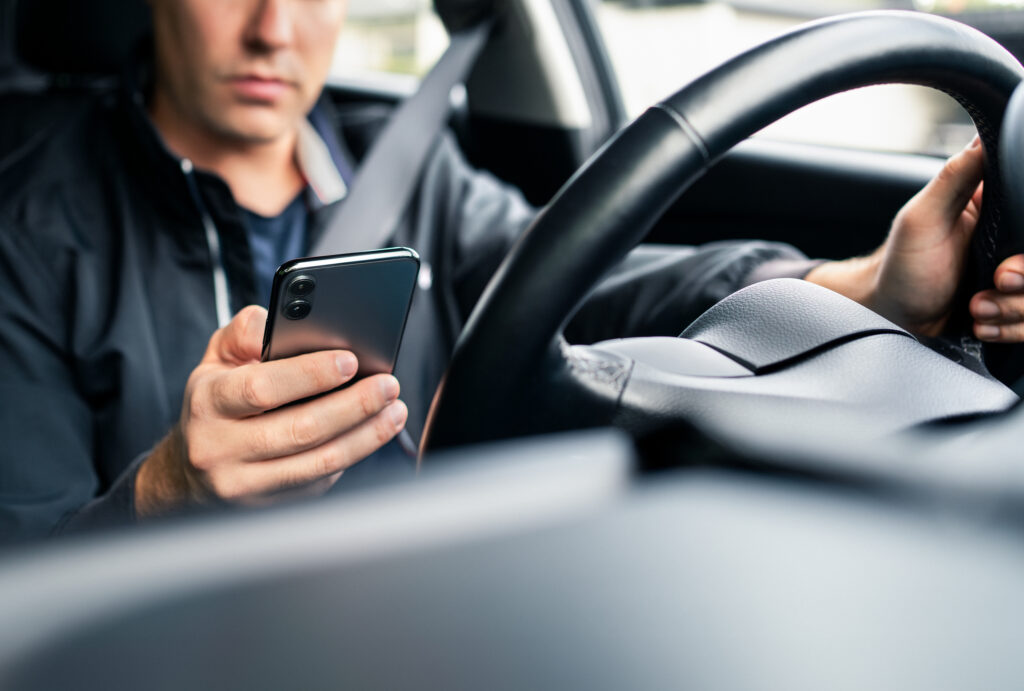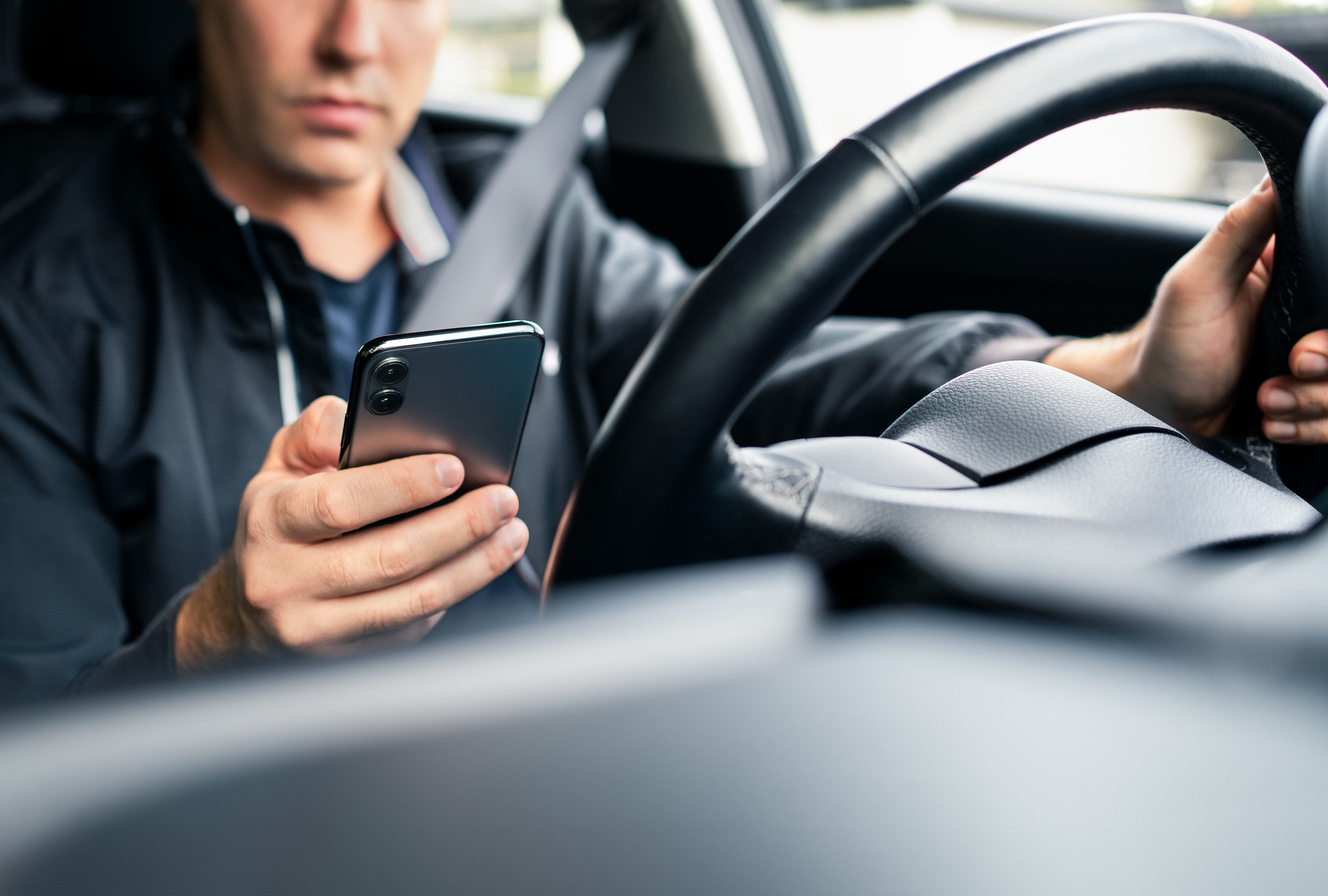Off-App Accidents: Are Uber/Lyft Drivers Liable in Florida?
Rideshare services like Uber and Lyft have become essential for millions of Floridians. But what happens when an accident involves one of their drivers who is not actively working? If a rideshare driver hits you while off-duty — not logged into the app — determining liability can be legally complex and financially stressful.

This guide explains how Florida law treats these “off-app” accidents, what insurance is available, and what steps victims can take to protect their rights and pursue compensation.
The Importance of Rideshare Driver Status
Whether a driver is working for Uber or Lyft at the time of an accident has a major impact on who is financially responsible. Florida law, like rideshare company policies, differentiates between:
- Drivers logged out of the app (off-duty)
- Drivers logged in but waiting for a ride
- Drivers actively on a trip
This distinction is crucial in determining who pays for injuries and damages.
What Does “Off the App” Mean?
When a driver is off the app, they are not connected to Uber or Lyft’s systems and not considered to be working. They may be driving for personal reasons, heading home, or waiting to start a shift.
During this time:
- The rideshare platform provides no insurance coverage
- The driver’s personal insurance becomes the only source of compensation
But that’s where complications often begin.
When Uber and Lyft Insurance Applies — And When It Doesn’t
Uber and Lyft provide tiered insurance coverage, but only when the app is on. Here’s how it typically breaks down:
App Off: No Coverage from Uber or Lyft
If the driver is not logged into the app, Uber and Lyft have no responsibility for the crash. The accident is treated the same as if it involved any other private citizen driving their own vehicle.
App On, No Ride Accepted: Limited Coverage
If the driver is logged in but hasn’t accepted a ride, the platform may offer limited third-party liability coverage, often capped at $50,000 per person or $100,000 per incident.
En Route or With Passenger: Full Coverage
Once a ride is accepted and until the trip ends, Uber and Lyft provide up to $1 million in liability coverage as well as uninsured/underinsured motorist coverage.
Why Personal Insurance Often Fails in Off-App Crashes
Although off-duty rideshare drivers are supposed to carry personal car insurance, most personal policies contain exclusions for commercial activity.
Common Reasons Insurers Deny Claims
- The insurer determines the driver frequently uses the car for rideshare
- The driver failed to disclose rideshare activity during underwriting
- The vehicle is registered for business use
Even if the driver was off-duty, insurance companies may claim they were operating the vehicle in a commercial capacity, creating a denial or reduction in payout.
What Is the Rideshare Insurance Gap?
The “insurance gap” is the period when:
- The driver’s personal policy refuses to pay
- Uber or Lyft’s insurance doesn’t apply
This leaves the victim with no active coverage from either party — a dangerous situation for anyone seriously injured in the crash.
The Legal Consequences of the Insurance Gap
When insurance won’t pay, victims are often forced to file a civil lawsuit against the rideshare driver directly. In Florida, personal injury claims allow you to seek damages for:
- Emergency and long-term medical costs
- Property damage
- Pain and suffering
- Lost wages and future income
- Emotional trauma or disability
Florida’s Comparative Negligence System
Florida follows a modified comparative negligence rule. That means each party is assigned a percentage of fault, and compensation is reduced based on your share of the blame.
Example
If a court finds that the Uber driver was 80% responsible and you were 20% responsible, your compensation will be reduced by 20%. If you’re found more than 50% at fault, you may not be able to recover damages at all.
Real Florida Cases Involving Off-Duty Rideshare Drivers
Pedestrian Hit by a Logged-Out Lyft Driver
A Lyft driver who had just finished a shift struck a pedestrian in a crosswalk. The driver had logged off moments earlier. Lyft refused coverage, and the driver’s insurer denied the claim, citing commercial vehicle use. A lawsuit was filed, and the victim ultimately recovered compensation through civil litigation.
Rear-End Collision with Off-App Uber Driver
A Florida motorist was rear-ended by an off-duty Uber driver on their way home. Despite not being logged into the app, the insurer contested the claim. The victim was able to pursue compensation through uninsured motorist coverage after legal intervention.
What to Do If You’re Hit by a Rideshare Driver Off the App
Step 1: Get Driver and Insurance Information
Ask for the driver’s license, contact details, and insurance card. Politely ask if they drive for Uber or Lyft and whether they were logged into the app.
Step 2: Document the Scene
Take photos of vehicle damage, road conditions, and injuries. Collect witness statements if possible.
Step 3: Report the Crash
File a police report and notify your own insurance provider. This creates an official record of the incident.
Step 4: Seek Medical Attention
Get evaluated by a medical professional, even if injuries seem minor. This helps prove damages later.
Step 5: Consult a Lawyer
If the driver’s insurer denies your claim or the rideshare company refuses involvement, a lawyer can subpoena records, challenge denials, and pursue legal compensation.
Key Takeaways About Off-App Rideshare Accidents in Florida
- Off-duty rideshare accidents are treated like ordinary private vehicle accidents.
- Uber and Lyft only provide coverage when the driver is logged into the app.
- Many personal policies exclude commercial driving and may deny claims.
- Victims often face coverage denials, delays, or gaps and must seek legal recourse.
- Civil lawsuits may be necessary to recover compensation when insurance fails.
Frequently Asked Questions About Off-App Rideshare Accidents in Florida
What happens if an Uber or Lyft driver hits me while they’re off the app?
If the driver was not logged into the Uber or Lyft app at the time of the accident, the rideshare company’s insurance coverage does not apply. In this situation, the driver is treated like any private individual, and their personal auto insurance is expected to cover damages. However, many personal policies exclude coverage if the vehicle is used for rideshare or commercial activity, which can lead to denied claims and legal disputes.
Can I still recover compensation if the driver’s personal insurance refuses to pay?
Yes, you may be able to recover compensation through a personal injury lawsuit. If the driver’s insurance company denies coverage or provides insufficient limits, you have the right to sue the driver personally for negligence. In some cases, your own uninsured or underinsured motorist coverage may also help pay for medical bills, lost wages, or other damages.
How can I find out whether the driver was working for a rideshare company at the time of the accident?
Determining a driver’s status at the time of the crash can be challenging without legal assistance. If the driver denies being logged into the app, your attorney can issue a subpoena to Uber or Lyft for timestamped activity logs that indicate whether the driver was online, between trips, or fully logged out.
Do Uber and Lyft ever cover accidents when the app is off?
No. Uber and Lyft provide tiered insurance coverage that only activates when the driver is logged into the app. If the driver is offline, neither company assumes any liability, and they will reject involvement in any claim resulting from the accident.
What type of insurance coverage do rideshare drivers need when they’re not on the app?
Rideshare drivers are generally required to carry personal auto insurance, but many standard policies do not cover commercial or rideshare activity. Some insurers offer hybrid or rideshare-specific policies that fill this gap, but many drivers either don’t have them or aren’t aware they need them. This lack of proper coverage is a common source of denied claims in off-app accidents.
Contact Lawlor, White & Murphey Today
If you’ve been injured in a car crash involving an off-duty Uber or Lyft driver, don’t assume the insurance companies will play fair. These cases often involve disputed liability, denied claims, and complex legal frameworks.
Our skilled Florida personal injury attorney can investigate your accident, determine the driver’s rideshare status, and hold the responsible parties accountable. Time is critical, and early legal action often makes the difference in recovering full compensation.
Don’t navigate this alone. Contact Lawlor, White & Murphey today for a free consultation and protect your rights.
